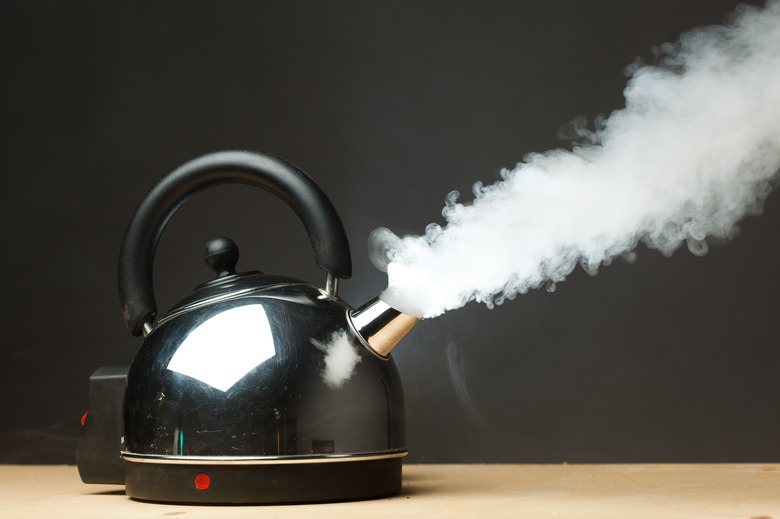Factors Affecting The Boiling Point
The boiling point of a liquid is the temperature at which it turns to vapor. Liquids turn to vapor when their vapor pressure equals the pressure of the surrounding air. A liquid's vapor pressure is the pressure exerted by a liquid when its liquid and gaseous states have reached equilibrium.
Pressure
Pressure
The biggest determinant of a liquid's boiling point is the surrounding pressure. In an open system, the outside pressure is most likely the earth's atmosphere. Water, for example, reaches the standard atmospheric pressure at 100 degrees Celsius. This measure is taken at sea level, where the full weight of the earth's atmosphere presses down upon the water. As elevation increases, water can boil at a lower temperature. At the top of Mount Everest, water boils at around 72 degrees Celsius.
Intermolecular bonds
Intermolecular bonds
When we consider other liquids, more factors help to determine the boiling point. Chief among them is the strength of the bonds between molecules. Ethyl alcohol, for example has a boiling point of 78.5 degrees Celsius at sea level. It is a liquid at room temperature and the bonds between its molecules are comparatively strong. By contrast, Methyl ether has a "boiling" point of -25 degrees Celsius. At room temperature and sea level, methyl ether is a gas.
Solutes, Solvents and Solutions
Solutes, Solvents and Solutions
An effective way of raising the boiling point of a liquid is to add another ingredient. While water at sea level has a boiling point of 100 degrees Celsius, its boiling point can be raised by adding a solute, such as salt. A solvent is any substance into which another is dissolved. The substance being dissolved is called the solute. When a solute is dissolved into a solvent, a solution is created. A solution usually boils at a higher point than the pure solvent.
Conclusions
Conclusions
The simplest way to change the boiling point of a liquid is to change the surrounding pressure. Using a closed system to artificially increase that pressure will raise the boiling point of a liquid. Lowering the surrounding pressure, either by increasing altitude or artificially creating a vacuum, will lower the same liquid's boiling point. Boiling point is dependent upon the strength of the bonds between its molecules. For this reason, adding a solute to the liquid will create stronger bonds between molecules, raising the solution's boiling point without increasing pressure.
Cite This Article
MLA
Osborne, Alan. "Factors Affecting The Boiling Point" sciencing.com, https://www.sciencing.com/factors-affecting-boiling-point-8566896/. 25 April 2018.
APA
Osborne, Alan. (2018, April 25). Factors Affecting The Boiling Point. sciencing.com. Retrieved from https://www.sciencing.com/factors-affecting-boiling-point-8566896/
Chicago
Osborne, Alan. Factors Affecting The Boiling Point last modified March 24, 2022. https://www.sciencing.com/factors-affecting-boiling-point-8566896/
